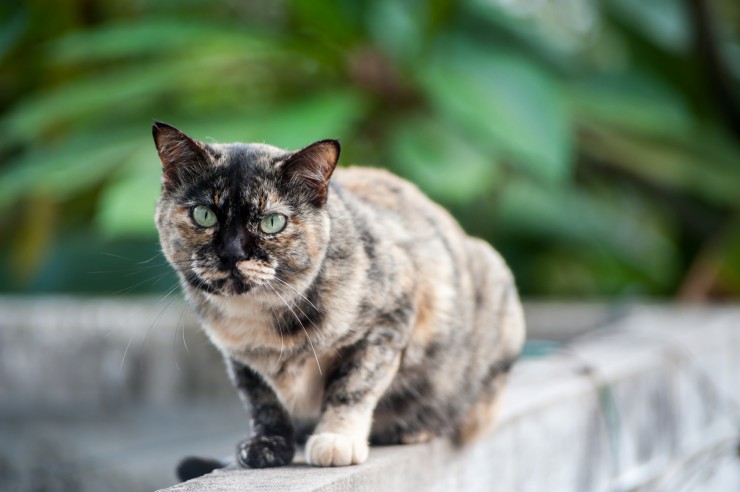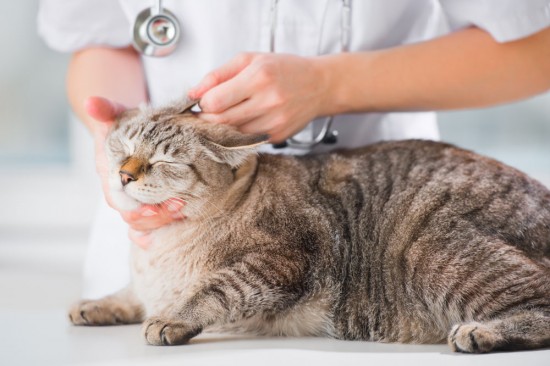

The average lifespan of cats can vary considerably from breed to breed, but as well as hereditary risk factors for health conditions and problems, how you care for your cat can and will also have a significant direct impact on their average longevity, and how healthy they are in their old age!
Taking steps to ensure that your cat has a fit, healthy old age and stands a good chance of reaching their senior years is a process that should start when your cat is still young, and how you begin to care for your cat from the time that you first get them can make all of the difference further down the line!
In this article, we will share ten top tips on how to start off on the right foot, with a view to keeping your cat healthy well into old age. Even if your cat is already an adult, it is never too late to start, so see what you can do today to give your cat the best chance of staying healthy in their senior years. Read on to learn more!
Moggies and mixed breed cats benefit from the advantages of hybrid vigour, which means that their mixed breeding has a direct, positive impact on their health. However, pedigree breeds of cat, and cats who have some pedigree in their recent lineage may have a slightly elevated risk of developing certain hereditary health conditions, such as is the case with the Siamese cat and kidney problems.
Get to know the potential risk factors for your breed, and how to spot the symptoms.
It is important to feed a good quality diet to your cat, in order to support their health and natural aging. As well as picking a good quality food, make sure that it is appropriate for your cat’s life stage and activity levels, and supports the type of lifestyle that they lead.
When you’re petting your cat, take the time to check them over to make sure that their eyes are clear, their nose is clean, and that their coat and skin are in good condition. Look for any signs of lumps, bumps or injuries, and of course, signs of parasites such as fleas.
Cats that go outside tend to take care of their own exercise requirements and keep fit and active, but cats that live mainly an indoor life may need a little push to get moving! Try to encourage your cat to exercise and keep fit with toys and games, in order to keep them at a healthy weight and keep their joints and muscles supple.
Weigh your cat every few months, in order to keep a check on their weight and be able to spot any gain or loss early on. Cats’ weight will tend to fluctuate slightly throughout the year, but if your cat has gained or lost too much weight, address this as soon as possible, as it will be much easier to resolve the problem at its outset than later on!
Ensuring that your cat gets their annual boosters is important, as this provides them with protection from all of the core communicable feline health conditions, and also, means that your vet can check your cat over for problems.
Fleas and intestinal worms can make your cat feel uncomfortable, as well as having a direct, negative impact on their general health and wellness. If you can’t remember when you last flea treated and wormed your cat, ask your vet to recommend the right products for them, and keep a schedule of their regular worming and flea treatment routine in the future.
There is a fine line between running to the vet every time your cat looks a bit odd, and avoiding going when your cat really needs to be seen! If something is bothering you in regards to your cat or if you are not sure if they need veterinary care or not, call the clinic and take advice from one of the nurses or clinicians to help to decide if you need to go in for a consult or not.
Cats do not take well to a lot of stress or upheaval, so try to ensure that your cat’s living situation is calm and appropriate, phasing in any changes gradually and considering the impact that they may have upon your cat.
Finally, as well as taking steps to keep your cat fit and healthy and so, reduce the likelihood of illnesses and problems, you must also take steps to keep your cat safe. This means assessing dangers outside of the home such as dogs or traffic, and taking steps to ensure that these things do not pose a threat to your cat’s health.
 German Shepherd Average Longevity And Hereditary Health
German Shepherd Average Longevity And Hereditary Health
 What You Should Do When You See A Dog Or Other Pet In A Hot Car
What You Should Do When You See A Dog Or Other Pet In A Hot Car
 The Akita Inu Dog - A Good Choice Of Pet?
The Akita Inu Dog - A Good Choice Of Pet?
 What Your Dog’s Urine Can Tell You About Their Health!
What Your Dog’s Urine Can Tell You About Their Health!
 Great Danes And Heart Disorders
Great Danes And Heart Disorders
 Eight Tips For Choosing A Good Quality Nutritious Food For Your Dog
Eight Tips For Choosing A Good Quality Nutritious Food For Your Dog
 Weaning Your Dog Away From Expecting A Food Reward When Training
Weaning Your Dog
Weaning Your Dog Away From Expecting A Food Reward When Training
Weaning Your Dog
 Deafness In Cats
Deafness In Cats
Deafness In Cats
Deafness In Cats
 My Two Cats Skiibowski And Milky I Adopted And How They Differ From One Another Like Day And Night
I know! I know! Everyone writes something about their pe
My Two Cats Skiibowski And Milky I Adopted And How They Differ From One Another Like Day And Night
I know! I know! Everyone writes something about their pe
 Omega 3 Supplements Can Benefit Horses With Lower Respiratory Diseases
Omega 3 Supplemen
Omega 3 Supplements Can Benefit Horses With Lower Respiratory Diseases
Omega 3 Supplemen
 Seven Questions To Ask Yourself Before You Give Your Dog A Treat
Seven Questions T
Seven Questions To Ask Yourself Before You Give Your Dog A Treat
Seven Questions T
Copyright © 2005-2016 Pet Information All Rights Reserved
Contact us: www162date@outlook.com